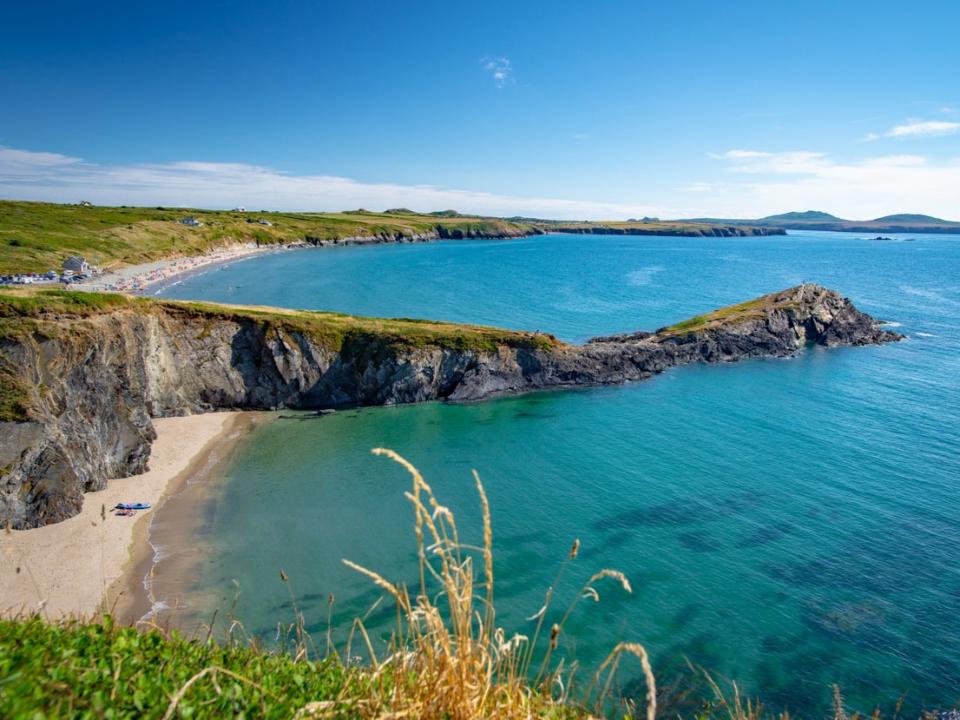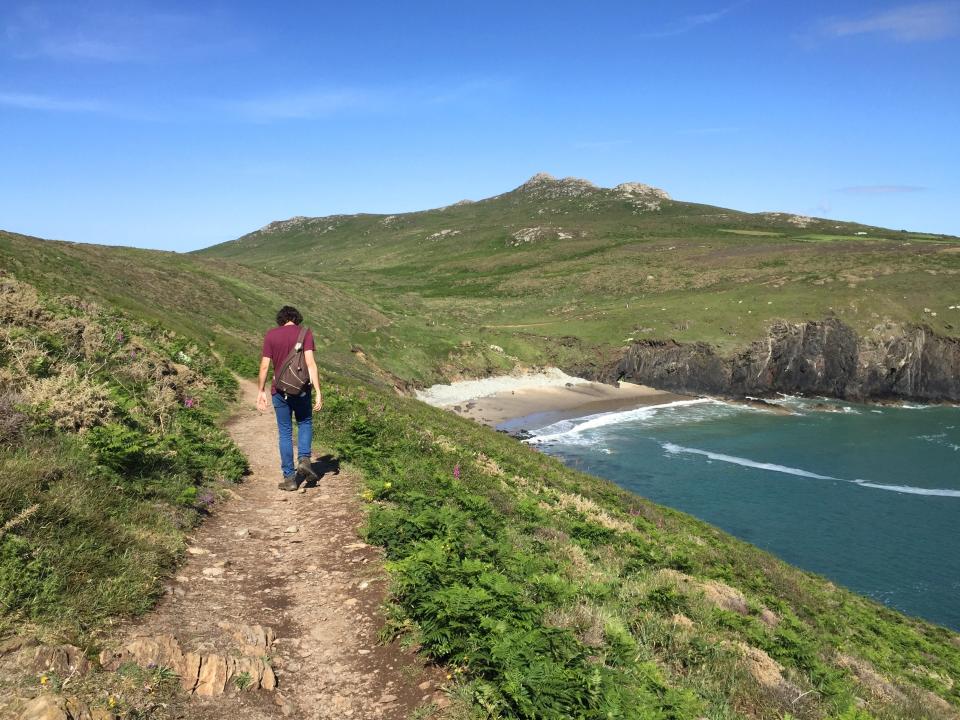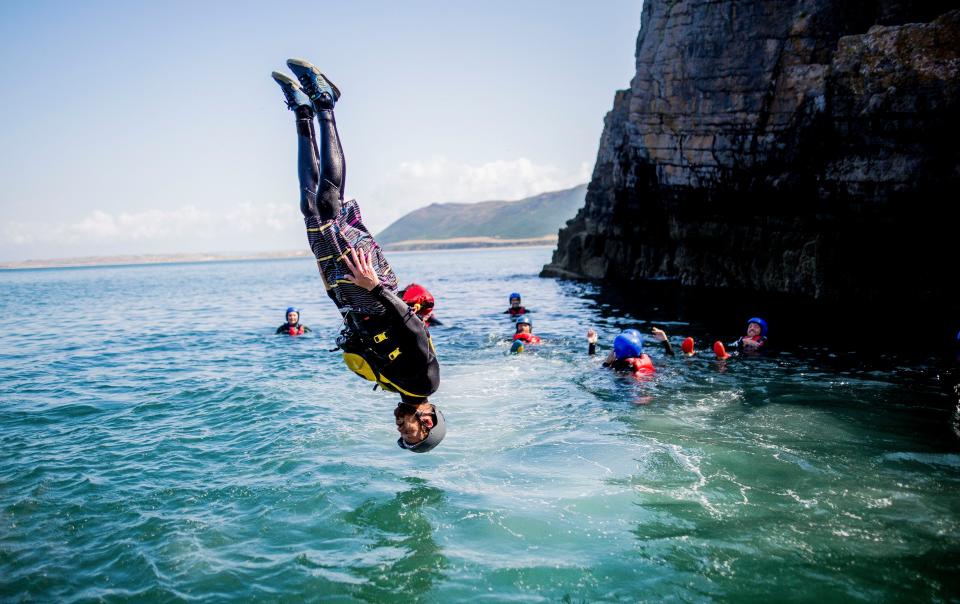Why St Davids is Wales’ rising eco star

At The Bug Farm in St Davids in Pembrokeshire, a summer breeze ruffles wildflower meadows that hum and hop with insects. It’s a vision as profound as it is simple: species-rich meadows like this are in trouble, with more than 97 per cent of Britain’s meadows lost since the 1930s. The first steps towards regeneration, according to Dr Sarah Beynon, a local academic entomologist, ecologist and farmer, is raising awareness, which in turn encourages wildlife conservation.
With its museum, bug house, farm trails and up-close insect encounters, The Bug Farm offers an immersive encounter with the undergrowth that most people find “disgusting”. Sarah’s chef husband, Andy Holcroft, puts imaginative riffs on edible insects at the adjacent Grub Kitchen, the UK’s only restaurant devoted wholly to entomophagy.
“Insects provide a highly sustainable alternative in a world that consumes too much meat,” says Sarah. “This is the food of the future; food that we hope will go from novelty to norm.” There is a gourmet ‘Bug Burger’ made with VEXo (plant and insect mince), topped with plant-based cheddar and served with tomatoes topped with toasted mealworms. It’s surprisingly delicious, as are the chillied crickets and mixed insect pakoras.

The Bug Farm and Grub Kitchen are just the cherry on St Davids’ environmentally conscious cake, however. Sitting out on a wild, cliff-rimmed, storm-battered peninsula in southwest Wales, St Davids is officially Britain’s smallest city, with a population of around 1,600.
Pilgrims have flocked to its handsome cathedral and shrine to St David since the Middle Ages. Now they come to hike along the 186-mile Pembrokeshire Coast Path and strike out into the Pembrokeshire Coast National Park, which in sync knit together some of Britain’s loveliest bays, coves, coastal woodlands, marshes and meadows. It is a place of hope, uplifting beauty and wide-open horizons.
We are on a mission to help people fall so deeply in love with nature that it will inspire them to join the fight in helping to protect it
TYF
Eco tourism here begins at the grassroots with EcoDewi (the St Davids Peninsula Ecology and Energy Group), which aims to tackle the climate emergency and biodiversity crisis while simultaneously improving community wellbeing. Using nature as its reference point, its projects include Mini Meadows, helping to restore and create wildflower meadows that form rich habitats for biodiversity and carbon stores; regular beach cleans; and establishing community gardens and orchards.
More recently, St Davids has headed out into uncharted waters with Câr-y-Môr, trialling the regenerative and highly sustainable polyculture ocean farming system that grows a mix of seaweed and shellfish and requires zero input – no fresh water, land, feed or fertilisers necessary. Such farms restore ocean ecosystems and store carbon dioxide, providing a viable solution to climate change and food shortages.

Pembrokeshire is shaped by the sea and defined by its changing tides, and nobody knows this better than foraging guides and all-round nature-lovers Julia and John Mansfield at Wild About Pembrokeshire. The couple lead insightful rambles along the shore, where would-be foragers soon learn to tell their pepper dulse from their laver, their sea lettuce from their wrack. According to John, all the world’s problems can be solved by seaweed, from arthritis to iodine deficiency, biofuels to global hunger.
Tuning into nature on a macro level, celebrating the seasons, giving people a whole new appreciation of food and allowing them to find headspace in a perennially switched-on age, foraging is set to boom in popularity in a post-pandemic world.
“As foragers we are privileged to be able to collect Pembrokeshire’s abundant seaweeds and wild foods, sharing the bounty of this wild larder and ancient knowledge with other people,” enthuses Julia, as she shows me around their latest venture: the Really Wild Emporium, a forage-focused café in a lovingly restored Art Deco building in the heart of St Davids. Keeping it honest and local, the café uses foraged ingredients in dishes like pickled rock samphire, pea and laverbread charcoal tartlet and sea buckthorn carrot cake.
Such green-minded spirit is equally reflected in other tourism ventures in St Davids. Accommodation-wise, environmental awareness has touched the entire spectrum: from campsites to boutique-chic hotels. Perched on cliffs above the pretty indentation of Caerfai Bay, just south of St Davids and reached via the coastal path, Caerfai Farm Camping is set on a working 180-acre organic dairy farm, where guests can watch the cows being milked from a viewing gallery and buy organic cheeses. Twr Y Felin, a minimalist-luxe, architect-designed conversion of a windmill, treads ever so lightly, too. It is aiming for the Green Key eco-label, with water-saving taps, LED bulbs, solar panelling, strong recycling policies and electric-car charging points. It is almost entirely paperless, with apps for check-in and digital invoicing.
At nearby TYF, adventure comes with impeccable eco credentials. Back in the mid 1980s, the outdoor specialist pioneered the sport of coasteering. Now they offer every kind of carbon-neutral coastal pursuit: coasteering, kayaking, surfing, SUP, rockpool safaris, you name it. A Certified B Corporation, they also run projects like the Future Generations Practitioner programme, training tomorrow’s healthcare leaders in the principles of planetary health and social prescribing.

“We founded coasteering back in 1986 along this coastline,” says marketing coordinator Bonnie Middleton. “St Davids is the perfect location for it, with a combination of sea caves, traversing, cliff jumping and crystal-clear water swimming. Our adventure guides are keen to point out marine birds and share their knowledge of the rich biodiversity that blesses our coastline.
“We are on a mission to help people fall so deeply in love with nature that it will inspire them to join the fight in helping to protect it.”
Read More
Welcome to the Italian hamlet offering free holidays to promote sustainable tourism
9 best bags for life and reusable carriers for your weekly shop

 Yahoo Finance
Yahoo Finance 